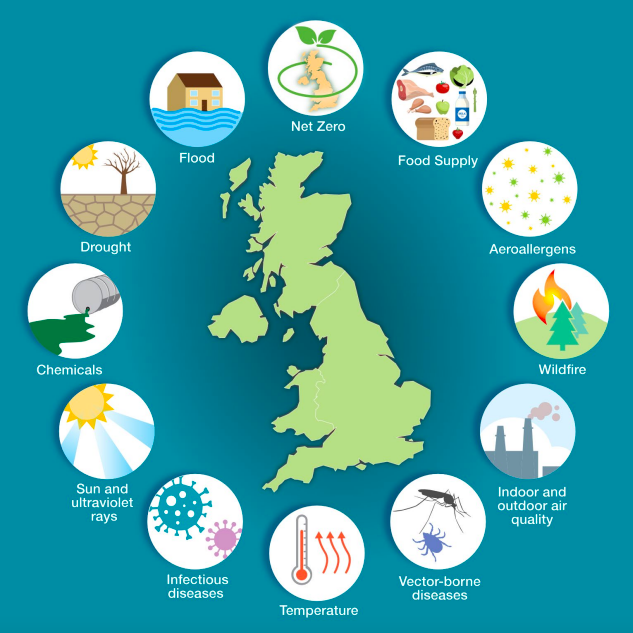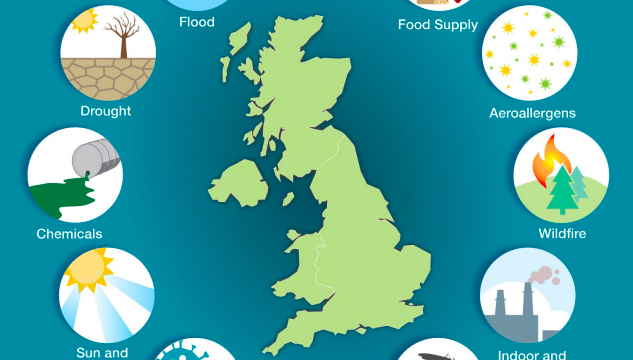UK Health Security Agency , 2023

Chapter 1 of the Health Effects of Climate Change (HECC) in the UK: 2023 report.
This chapter provides an overview of how the UK climate is changing and will change over the coming decades, setting the scene and providing the context for the rest of the report. The chapter was led by experts at the Met Office with academic affiliations at the University of Leeds and University of Bristol. Projecting how the climate will change in the UK is complex, not least because of the uncertainty around how rapidly nations around the world will decarbonise their economies and societies, which will determine the amount of warming that the UK will experience. Climate science thus uses a range of ‘possible futures’ based on scenarios of different levels of greenhouse gas emissions. Successful global decarbonisation aims to limit warming and ideally keep global average temperatures well below 2°C and ideally below 1.5°C above pre-industrial averages. Current global policy commitments are more likely to give a median warming of 2°C to 3°C, and median global warming over 4°C is increasingly considered ‘high end’ warming (reasonable worst-case scenario). Currently, we have reached in excess of 1.1°C above pre-industrial temperatures.
Published In: UKHSA (2023). Health Effects of Climate Change (HECC) in the UK: 2023 report



